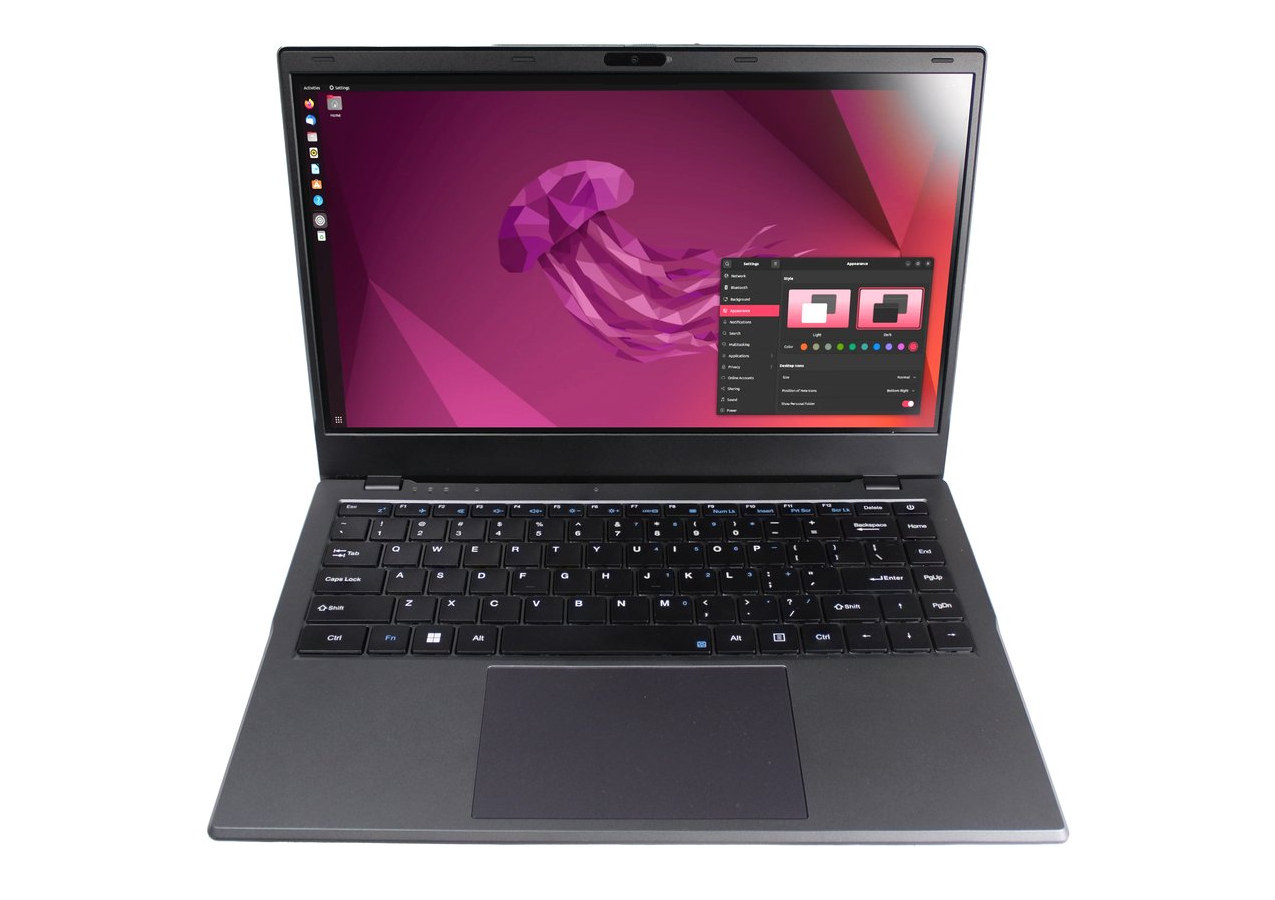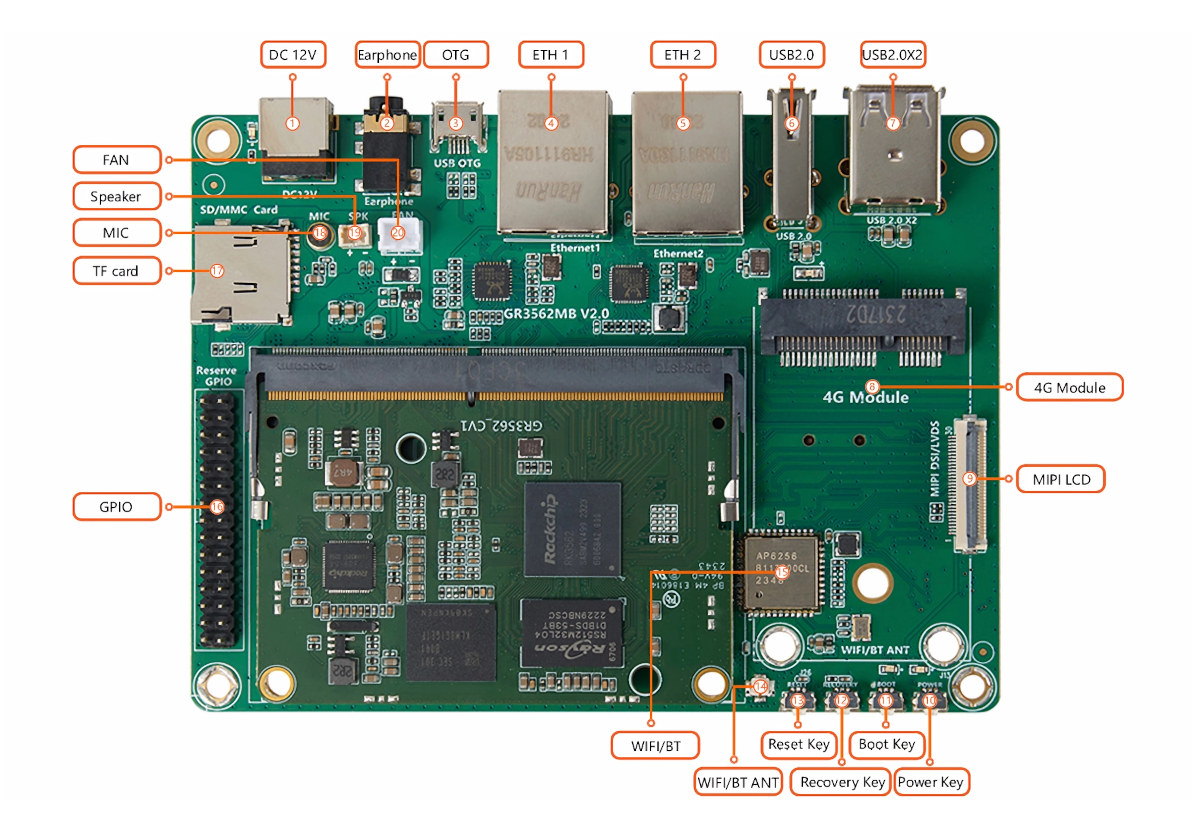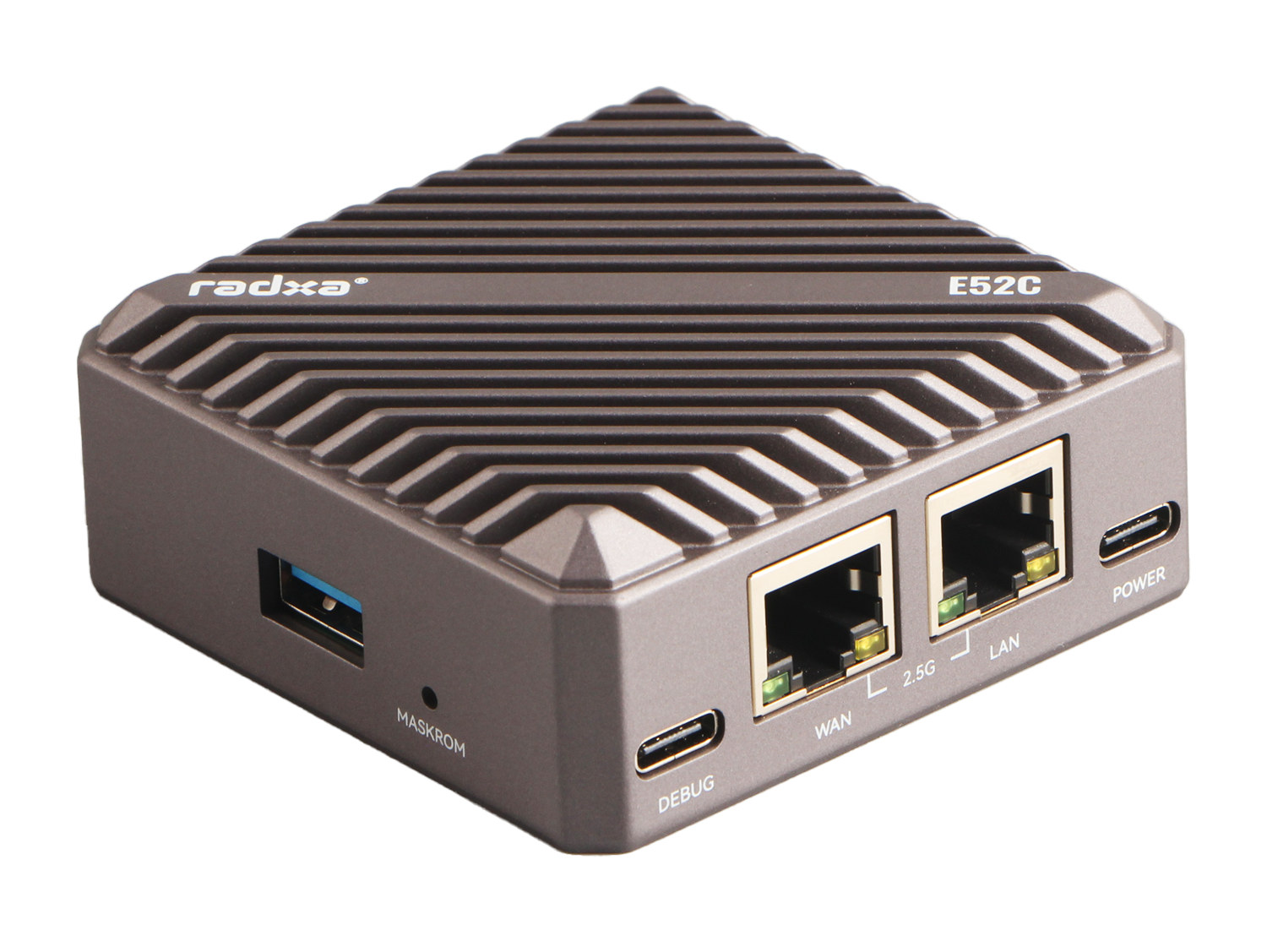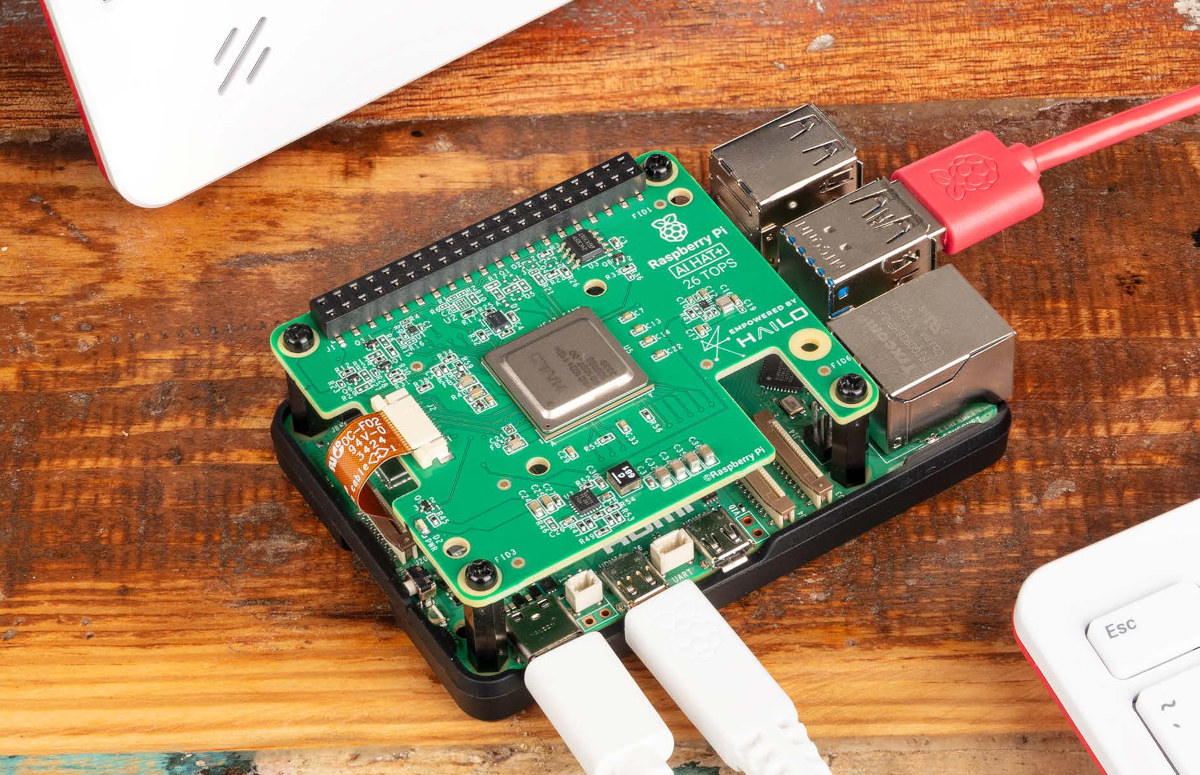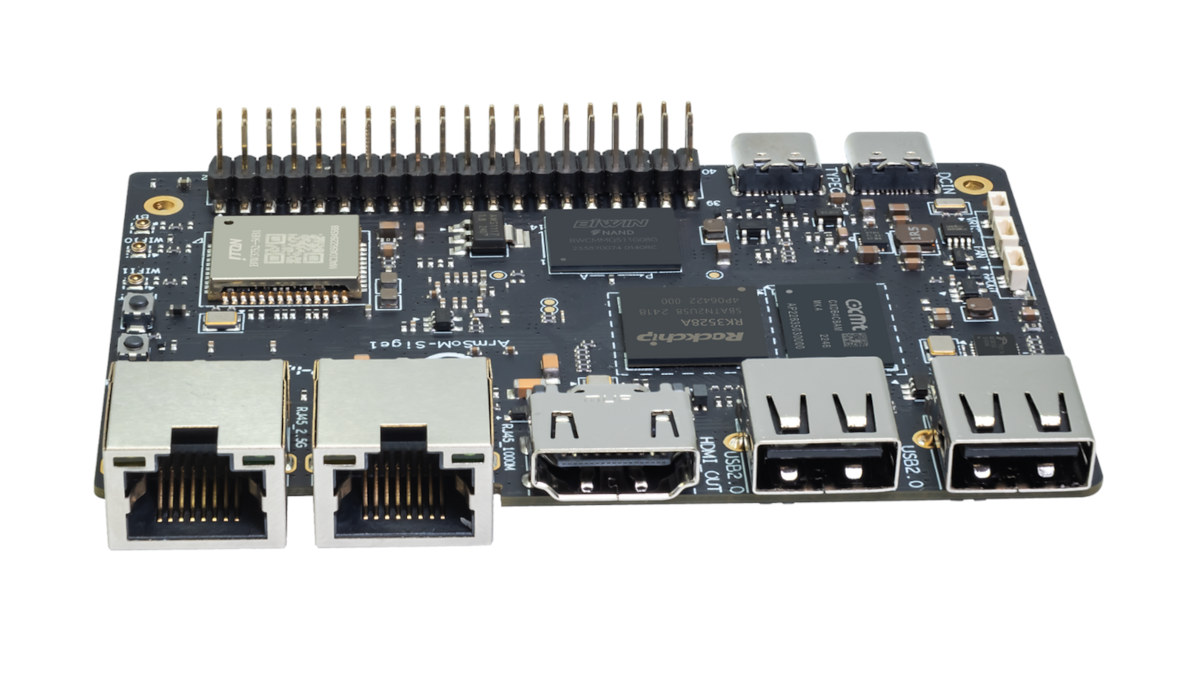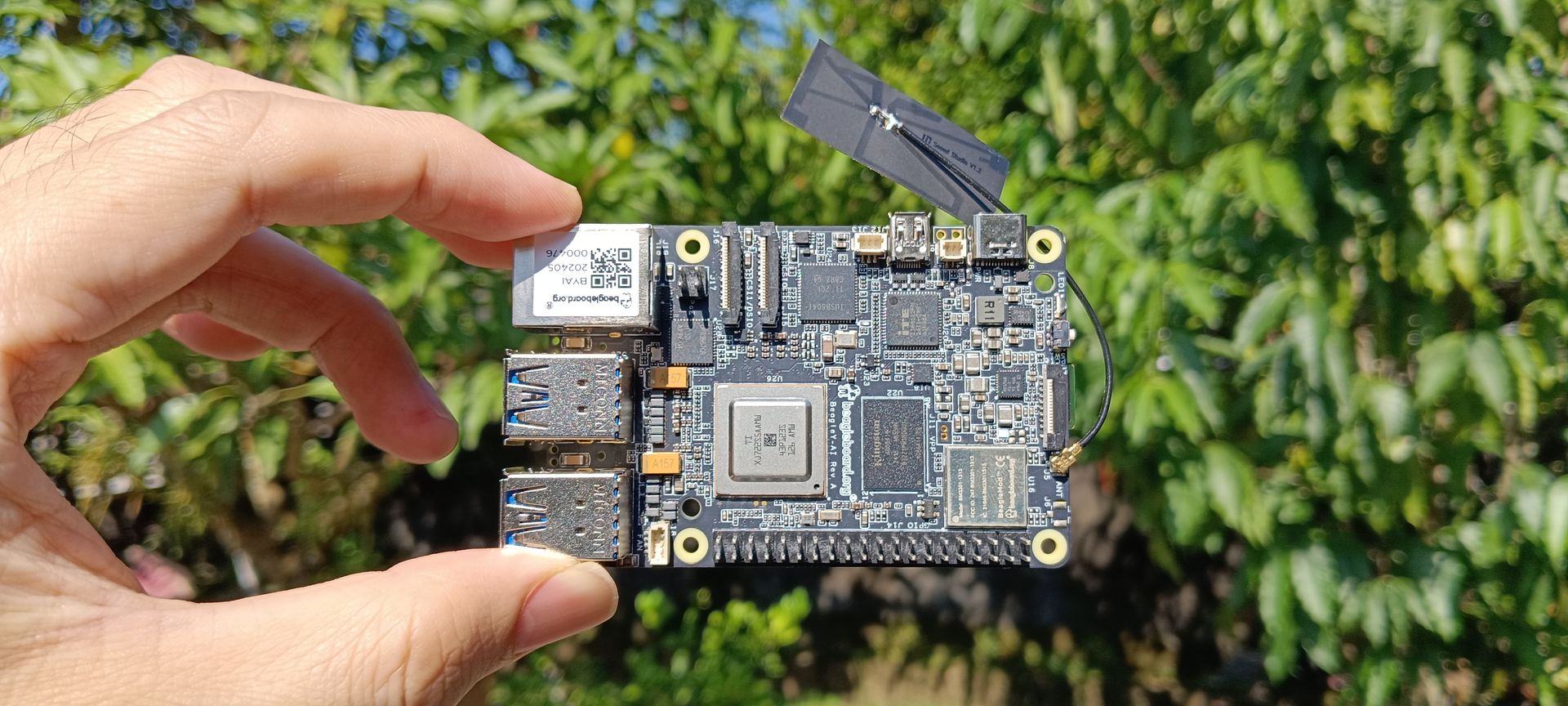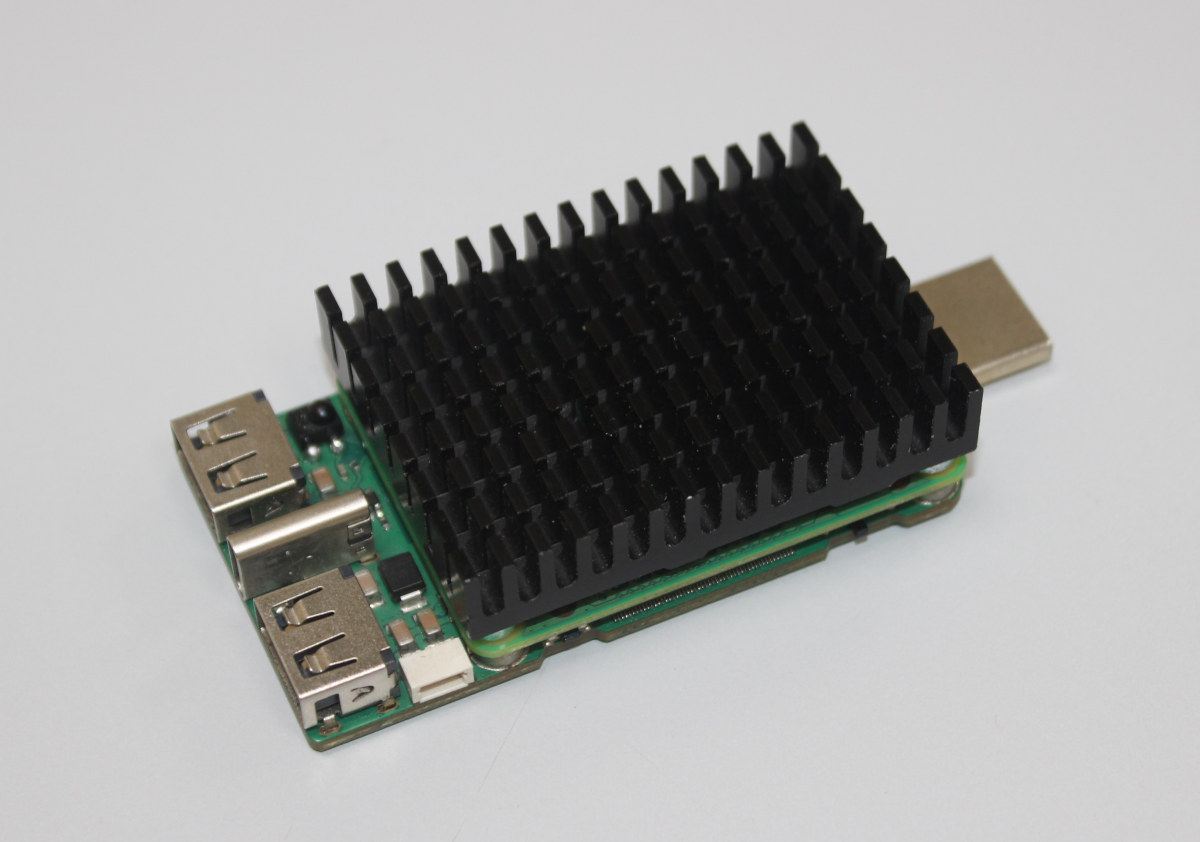GenBook RK3588 is a modular Linux (and Android) laptop powered by a Rockchip RK3588 Arm system-on-module (SoM), and easily serviceable by the user who can add M.2 MVMe SSD storage, switch wireless module, and eventually update to a more powerful SoM, or even change the display. It looks very similar to the Cool Pi Arm Linux laptop, and it’s indeed made by the same company, but a representative told CNX Software that the GenBook RK3588 was an upgrade of the Cool Pi without further details. So let’s have a closer look. GenBook RK3588 laptop specifications: System-on-Module – GenM5 (same as Cool Pi CM5 except for the move from LPDDR4/4X to LPDDR5) SoC – Rockchip RK3588 octa-core processor with 4x CortexA76 cores, 4x CortexA55 cores Arm Mali-G610 MP4 GPU Video decoder – 8Kp60 H.265, VP9, AVS2, 8Kp30 H.264 AVC/MVC, 4Kp60 AV1, 1080p60 MPEG-2/-1, VC-1, VP8 Video encoder – 8Kp30 H.265/H.264 video […]
Graperain G3562 – A Rockchip RK3562 system-on-module and development board
Graperain G3562 is a Rockchip RK3562 quad-core Cortex-A53 system-on-module (SoM) with up to 8GB LPDDR4, up to 128GB eMMC flash suitable for Edge AI, IoT, automation, and consumer electronic applications. The company also provides the G3562 development board for the SoM with an M.2 socket for NVMe SSD, dual Ethernet, WiFi 5 and Bluetooth 5.0, and optional 4G LTE/3G cellular connectivity, plus a MIPI DSI/LVDS display connector, two MIPI CSI camera connectors, three USB 2.0 ports, audio interfaces, and expansion through a 30-pin GPIO header and UART connector. Graperain G3562 SoM GrapeRain G3562 specifications: SoC – Rockchip RK3562 CPU – Quad-core Arm Cortex-A53 quad-core @ 2.0 GHz GPU – Mali-G52-2EE with support for OpenGL ES 1.1/2.0/3.2, OpenCL 2.0, Vulkan 1.0/1.1 AI accelerator – 1 TOPS (INT8) NPU VPU Encoder – H.264 1920×1080 @ 60fps Decoder – H.265/VP9 4096×2304 @ 30fps; H.264 1920×1080 @ 60fps RAM – 2GB LPDDR4 by default […]
Radxa E52C – A Rockchip RK3582 router with dual 2.5GbE, USB 3.0 port, USB serial console port
Radxa E52C is a compact router based on Rockchip RK3582 hexa-core Cortex-A76/A55 SoC and featuring two 2.5GbE ports, a USB 3.0 port, and a USB-C port for serial console access which will make some readers happy… It’s an update to the earlier Radxa E20C “Mini Network Titan” router, which was limited to two Gigabit Ethernet ports and a USB 2.0 port, and powered by an entry-level Rockchip RK3528A quad-core Cortex-A53 SoC. The Radxa E52C is better in every way with a much faster CPU, higher maximum memory and flash storage capacities, faster networking, and support for USB 3.0 storage or wireless dongles leading the company to call it an “Enhanced Mini Network Titan”. Radxa E52C specifications: SoC – Rockchip RK3582 CPU Dual-core Cortex-A76 with up to 2.4 GHz Quad-core Cortex-A55 at up to 1.8GHz GPU – None (all good since we are talking about a router here…) AI accelerator – 5 […]
Raspberry Pi Touch Display 2 with 1280×720 resolution, thinner design launched for $60
Raspberry Pi has launched the Touch Display 2, a 7-inch touchscreen RGB TFT display with 1280×720 designed to be connected to Raspberry Pi single board computers. It improves on the original Raspberry Pi Touch Display with a higher resolution (1280×720 vs 800×480) and a slimmer form factor thanks to the integration of the display driver PCB into the display enclosure itself. Raspberry Pi Touch Display 2 specifications Display Type – 7-inch 24-bit RGB TFT display Resolution 1280 x 720 resolution Touch panel – 5-point multi-touch capacitive touch panel Active area – 155 x 88 mm Backlight type – LED B/L Surface treatment – anti-glare Host interface – MIPI CSI connector with ribbon cable compatible with all Raspberry Pi boards except the Raspberry Pi Zero line Power Supply – 5V DC via 2-wire, 3-pin connected inserted into the 40-pin GPIO header Dimensions – 189.32 x 120.24mm The back of the display […]
Raspberry Pi AI HAT+ features Hailo-8L or Hailo-8 AI accelerator with up to 26 TOPS of performance
The Raspberry Pi AI HAT+ is a PCIe expansion board for the Raspberry Pi 5 with either a 13 TOPS Hailo-8L or 26 TOPS Hailo-8 AI accelerator. You may remember the Raspberry Pi AI Kit was introduced last June with an official M.2 Key M HAT+ and a 13 TOPS Hailo-8L M.2 AI accelerator module, The new Raspberry Pi AI HAT+ is quite similar except the chip is soldered on the expansion board and offered with either Hailo-8L or the more powerful Hailo-8 variant. Raspberry Pi AI HAT+ specifications: Supported SBC – Raspberry Pi 5 AI accelerator Hailo-8L AI accelerator with up to 13 TOPS of performance Hailo-8 AI accelerator with up to 26 TOPS of performance Host Interface – PCIe Gen3 interface 16mm stacking GPIO header PCIe FPC cable Spacers and screws enabling fitting on Raspberry Pi 5 with Raspberry Pi Active Cooler Dimensions – 65 x 56.5 mm […]
Banana Pi BPI-M1S RK3528 SBC features HDMI 2.0, 2.5GbE, WiFi 6, and more
The Banana Pi BPI-M1S, also known as the ArmSoM-Sige1, is a low-profile single board computer (SBC) based on the Rockchip RK3528 quad-core Cortex-A53 SoC initially designed for entry-level 4K TV boxes. Contrary to the two other RK3528(A) SBCs we’ve covered, namely the Radxa Rock E20C and FriendlyELEC NanoPi Zero2 focusing on low-cost and small footprint for headless networked applications, the Banana Pi BPI-M1S integrates more features such as HDMI 2.0 for 4K video output and audio, 2.5GbE and WiFi 6 networking, and a 40-pin GPIO header for expansion. Banana Pi BPI-M1S specifications: SoC – Rockchip RK3528 CPU – Quad-core Arm Cortex-A53 @ 2.0 GHz GPU – Arm Mali-G450 GPU with support for OpenGL ES1.1, ES2.0, and OpenVG 1.1 APIs VPU H.264, H.265, and AVS2 decoder up to 4Kp60 H.264 and H.265 encoder up to 1080p60 Memory – 4GB LPDDR4x Storage 32GB eMMC flash (by default) MicroSD card slot Video Output – […]
BeagleY-AI SBC review with Debian 12, TensorFlow Lite, other AI demos
Today I’ll be reviewing the BeagleY-AI open-source single-board computer (SBC) developed by BeagleBoard.org for artificial intelligence applications. It is powered by a Texas Instruments AM67A quad-core Cortex-A53 processor running at 1.4 GHz along with an ARM Cortex-R5F processor running at 800 MHz for handling general tasks and low-latency I/O operations. The SoC is also equipped with two C7x DSP units and a Matrix Multiply Accelerator (MMA) to enhance AI performance and accelerate deep learning tasks. Each C7x DSP delivers 2 TOPS, offering a total of up to 4 TOPS. Additionally, it includes an Imagination BXS-4-64 graphics accelerator that provides 50 GFlops of performance for multimedia tasks such as video encoding and decoding. For more information, refer to our previous article on CNX Software or visit the manufacturer’s website. BeagleY-AI unboxing The BeagleY-AI board was shipped from India in a glossy-coated, printed corrugated cardboard box. Inside, the board is protected by […]
DigiPort is an HDMI computer dongle powered by a Raspberry Pi CM4 (Crowdfunding)
Shivam Goyal, going under the Geeky Tronics name, has developed the DigiPort HDMI computer dongle powered by a Raspberry Pi CM4 system-on-module and designed to be connected directly to the back of an HDMI or through an HDMI cable. Since it does not support MHL, the DigiPort also needs a USB-C power source. You can add a keyboard and a mouse through its two USB 2.0 ports or via Bluetooth and network connectivity is managed through WiFi 5 making it a portable computer ready to use out of the box. DigiPort specifications: Supported System-on-Module – Raspberry Pi CM4 SoC – Broadcom BCM2711 quad-core Cortex-A72 processor @ 1.5 GHz System Memory – 1GB to 8GB LPDDR4-3200 SDRAM Storage – 0GB (CM4 Lite), or 8GB to 32GB eMMC flash Wireless – Dual-band WiFi 5 and Bluetooth 5.0 Storage – MicroSD card for OS when using a CM4 Lite module Video Output – […]


